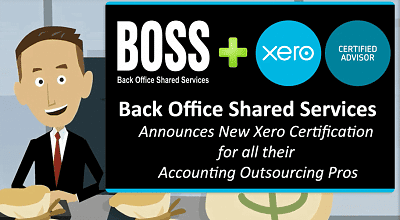A person will have nine to 12 jobs in their lifetime, according to the WEF. Here are some future-proof skills to help you in your career.
 Picture: iStock
Picture: iStock
There are different reasons why a person would want to change jobs, such as salary needs, shifting roles, restructuring, retrenchments, toxic work environments, technology, or flexible work arrangements. The World Economic Forum (WEF) indicates one person will have nine to 12 jobs in their lifetime. Whether the decision to change jobs is voluntary or involuntary, Michael Gullan, CEO of eLearning consultancy G&G Advocacy says one should actively future-proof their careers by continuously developing their knowledge and skills. He says as new technologies are adopted, WEF suggests 23% of jobs will change in the next five years. This is another reason why Gullan suggests employees should take personal responsibility to identify and close skills gaps that may prevent them from achieving their career and income goals. ALSO READ: Increase in unemployment as various industries shed jobs
What to do when changing jobs
Professional Tips:
- Professional notice period: Notice periods differ by industry, level of employment, and organisation. Gullan says one must give adequate notice according to their employment contract. As this will facilitate a professional handover.
- Transfer knowledge as well as possible: One should make a list of all the ongoing projects, tasks, and commitments. “When your successor is known, hand over all the information gracefully so you set them up for success.” If the successor is not known, create a detailed handover dossier with processes, links, shortcuts, and institutional knowledge to make it as professional, helpful, and seamless as possible.
- Update your contact list and network: Another important thing to do is to update colleagues’ and professional associates’ contact information. Make time to keep in touch with important people you are leaving behind. “You never know what relationships will grow over time or when you may need a referral, advice, or a favour.”
- Starting a new role: Resist the temptation to take on tasks in your new job before your actual start date, especially if you’re working out your notice. Get clarity on your responsibilities and duties and how your performance will be measured.
- Ongoing feedback: Let your managers and colleagues know you want to learn and grow as much as possible. Be open to receiving constructive feedback. Once you have established some trusted work friends, ask them to give you feedback if they notice anything that could be important to your success.
ALSO READ: Salaries could be better in 2025
Personal Tips:
- Take control of the narrative: Announce your job change with the right people, at the right time, in the right way. Focus on the positive aspects of your current job so you do not burn bridges and preserve all relationships.
- Manage your time and energy: Gullan says people often underestimate how much time changing jobs takes, from compiling a handover and managing the details of a new employment contract and package to preserving existing relationships and building new ones. Do not neglect your health while dealing with all the change and stress.
- Lessons learnt: All career transitions, especially the hard ones, teach you something. Make notes on lessons and skills you learnt in your job. Revisit your notes every couple of months after the transition. With time, you will gain additional clarity on areas you want and can develop. This will help you plan and be ready for the future.
- Make time to learn: Onboarding happens at a stressful time of big change and requires your full attention to be successful. List all the upcoming tasks and eLearning courses you need to complete. Create a timetable for the courses assigned to you. Once you’ve completed them, create another timetable of all the voluntary courses you want to complete.
- Build key relationships: “Your managers, team leaders, and peers will want to get to know you soon. Take the time to network and nurture new relationships. There are also people behind the scenes who are ‘wisdom keepers’ with vast institutional and industry knowledge. Get to know them and their roles,” says Gullan.
ALSO READ: Struggling to find a job? Try upskilling yourself
“Being intentional about how you plan for and transition to a new job is a key skill every adult should learn. And remember that all career shifts, especially the difficult ones, teach you something.”
For more news your way
Download our app and read this and other great stories on the move. Available for Android and iOS.

















